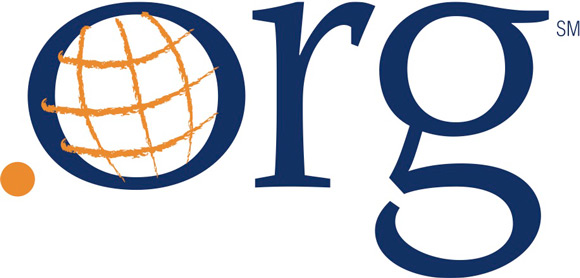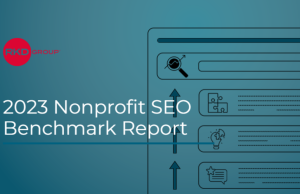An international group of leaders of the Internet and the nonprofit community have filed paperwork in California to establish a co-op organization in an attempt to block the $1.13-billion sale of Public Interest Registry (PIR) to venture firm Ethos Capital.
The name of the new organization is Cooperative Corporation of .ORG Registrants. The concept is to convince the Internet Corporation for Assigned Names and Numbers (ICANN) to move to block the sale of the nonprofit PIR.
PIR also has to provide to a Pennsylvania court, the state where it is registered, that the transaction from nonprofit to for-profit is in the public interest.
The work is focused on pressuring ICANN to move the contract over, not for the co-op to buy PIR. Organizers of the co-op said that the goal is to recognize that the Internet Society (ISOC) has lost the nonprofit sector’s trust by the attempted sale, to keep PIR going, and to award the contract to a new owner, the co-op.
Having a venture firm in charge of .org rather than a nonprofit operating it is what has technologists in the nonprofit space concerned.
There are nearly two dozen prominent backers of the co-op including: Katherine Maher, executive director of the Wikimedia Foundation; Mike Roberts, former president and chief executive of ICANN; Esther Dyson, former chairman of the ICANN and executive founder of Wellville and chairman of EDventure Holdings; William Woodcock, chief executive of EcoRace and of EcoTruc; Cindy Cohn, executive director of the Electronic Frontier Foundation (EFF); Marietje Schaake, a former member of the European Parliament and international policy director of Stanford University’s Cyber Policy Center; and, Amy Sample Ward of NTEN.
A spokesperson for Ethos was contacted for comment and only provided items from a blog post attributed to the ISOC, PIR and Ethos. The authors pointed out when ICANN “awarded the operation of .ORG to the Internet Society in 2002, that agreement did not require that .ORG be operated by a nonprofit entity or by a non-governmental organization. In fact, from 1993 to 2003, .ORG was operated by a for-profit company. This transaction and a return to for-profit status will support .ORG’s ability to continue to adapt to the changing Internet and domain name landscape.”
Cindy Cohn of the EFF said that the idea of a venture firm running the Internet is not credible. “PIR needs to change course,” said Cohn. “ICANN can agree to not approve” the sale, she said.
Cohn stressed that as a nonprofit, PIR’s budget is supplemented by donations from technology firms. Others in the group have speculated that costs will skyrocket so that the venture firm can recover its investment. That was addressed in the blog post from ISOC, PIR and Ethos.
“It should be noted that shortly after announcement of the transaction, speculators that warehouse .ORG and other domain names, with the aim of selling them later for huge profits, fueled rumors about potentially extreme price increases. What might be a relatively modest increase for a nonprofit organization holding a single registration, would mean something substantially different for a speculator holding tens of thousands of domain names. We responded to these unfounded claims by providing clear guidance on PIR’s plans with respect to reasonable pricing.”
Ethos will “maintain PIR’s historical practices on pricing,” according to the posting. “At less than $10 per year, .ORG remains one of the most affordable domains in the marketplace. Ethos has committed to limit any potential increase in the price of a .ORG domain registration to no more than 10% per year on average, even though today there are no regulatory pricing constraints on PIR or virtually every other domain name registry.”
Members of Congress are watching the sale and asking questions. Staff members from the offices of Sen. Elizabeth Warren (D-Mass.), Sen. Ron Wyden (D-Ore.), Sen. Richard Blumenthal (D-Conn.) and Rep. Anna Eshoo (D-Calif.) all received briefings this week, The NonProfit Times has learned. The briefing paper obtained by The NonProfit Times includes five bullet points for the elected officials, two of which dealt with stability of the system in its current configuration.
The other talking point included public good issues and self-governance.
“Nonprofits work to serve the public good. We should have the trust and security that those holding power on our websites — which nonprofits rely on for fundraising, program delivery, and communication — are accountable to the public good, too,” said Sample Ward of NTEN.
“This proposal stands with the more than 500 nonprofit organizations from around the world that have pledged to stop the sale. We urge ICANN to halt the transfer of the .ORG registry to private ownership, and redirect its governance to a body with the interests of the non-commercial internet at its core,” she said. “Unlike a sale to a private equity firm, a cooperative model is a long-term plan; one with the users and their beneficiaries at the heart.”
Regulating the .org space is not a straight line. The .org domain, along with .com and .net, were all originally run by the National Science Foundation (NSF). NSF sub-contracted the running of these domains to a company called Network Solutions, who then took them over. Verisign got the contract for .org by buying Network Solutions for $21 billion in 2000.
ICANN then took .ORG from the nonprofit Verisign and issued a call for proposals in 2002. ICANN received 11 proposals to run .org. The ISOC won the bid process by promising to run .org as the online home for nonprofits. It has run it ever since, explained Jacob Malthouse, founder of the .ECO domain and former vice president of global partnerships at ICANN.
The contract is hugely lucrative, because the owner is effectively the sole global wholesaler for all .ORG domains. Since domains must be renewed annually and .org has one of the highest renewal rates at more than 70 percent, this creates a massive annuity. It is currently valued at more than $1 billion, said Malthouse.
It is the contract owner that is responsible for setting the rules for .ORG, for ensuring each domain is unique, and for ensuring that it is always available to be queried by anyone trying to visit a .ORG domain. “When the public registers a .org domain, they usually do so through a domain name retailer, also called a registrar. These retailers are only responsible for engaging customers. They are the storefront. The factory is the entity that owns the .ORG contract. That’s why the issue is so important for nonprofits. The very nature of .ORG as a service is shifting under their feet,” said Malthouse.









